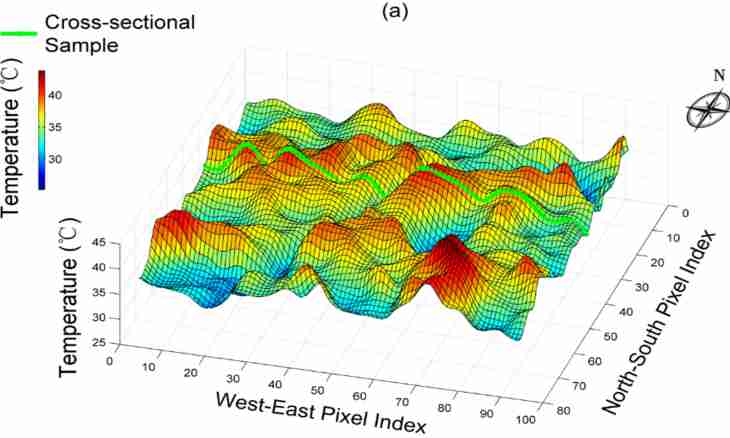The dependence of temperature of gas on change of volume is explained, first of all, by the initial physical meaning of the concept of temperature which is connected with intensity of the movement of particles of gas.
Physics of temperature
From a course of molecular physics it is known that body temperature in spite of the fact that it is macroscopic size, is connected, first of all, with the internal structure of a body. It is known that particles of any substance are in the constant movement. The type of this movement depends on aggregate state of substance.
If this solid body, then particles fluctuate in knots of a crystal lattice and if it is gas, then particles freely move in volume of substance, colliding with each other. Temperature of substance is proportional to intensity of the movement. In terms of physics, it means that temperature is directly proportional to kinetic energy of particles of substance which, in turn, is defined by the size of speed of the movement of particles and their weight.
The more body temperature, the more average kinetic energy of particles. This fact is reflected in a formula for the kinetic energy of ideal gas equal to the work of concentration of particles, Boltzmann's constant and temperature.
Influence of volume on temperature
Imagine the internal structure of gas. Gas can be considered ideal that means absolute elasticity of collisions of molecules with each other. Gas has a certain temperature, that is a certain size of kinetic energy of particles. Each particle hits not only with other particle, but also with a wall of the vessel limiting substance volume. If the volume of gas increases, that is gas extends, then the number of collisions of particles with walls of a vessel also with each other decreases because of increase in a free run of each molecule. Reduction of number of collisions leads to recession of pressure of gas, however the general average kinetic energy of substance does not change because process of impact of particles does not influence its size in any way. Thus, at expansion of ideal gas temperature does not change. This process is called isothermal, that is process with a constant temperature. Pay attention that this effect of constancy of temperature at expansion of gas is based on an assumption of its ideality and also that at impact of particles with walls of a vessel of a particle do not lose energy. If gas not ideal, then at its expansion decreases the number of the collisions leading to energy loss, recession of temperature becomes less sharp. Almost given situations corresponds to thermostating of substance of gas at which the power losses causing reduction of temperature decrease.

